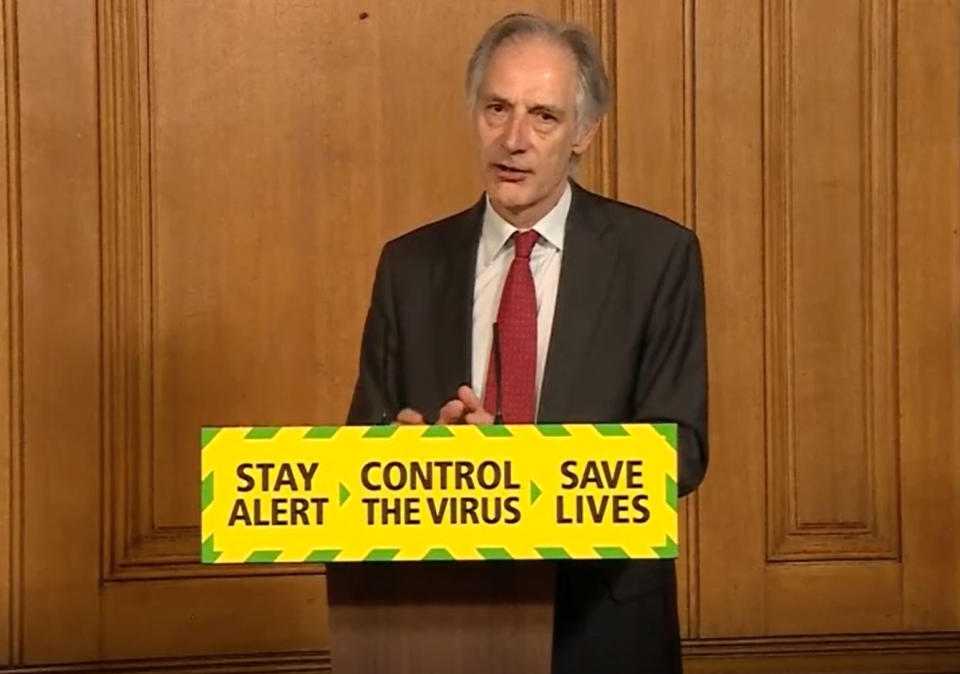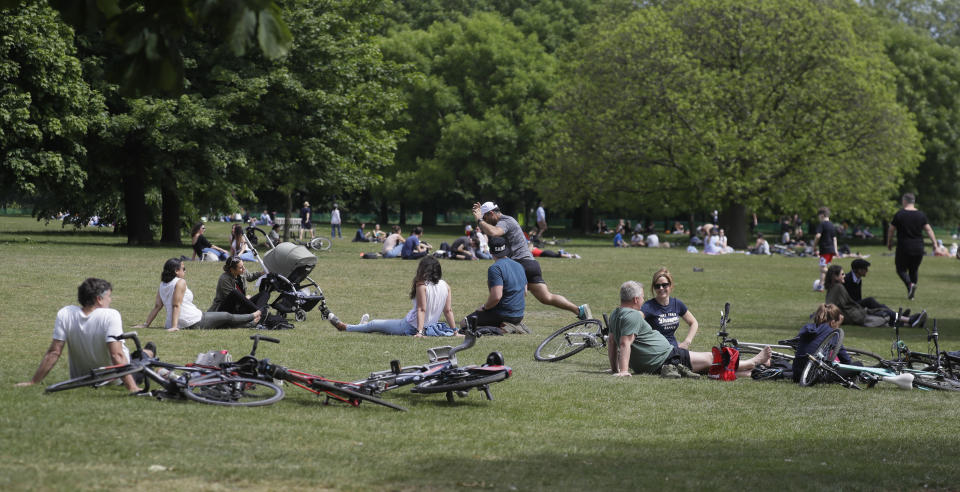Coronavirus death toll of 111 is lowest in UK since lockdown began

Health chiefs have announced that 111 more people in the UK have died after testing positive for coronavirus - the lowest daily toll since lockdown began on the 23 March.
Health Secretary Matt Hancock said today at the daily press briefing: “Sadly 39,045 people have died with coronavirus. That’s 111 yesterday.
“Again that figure is the lowest figure since lockdown began on March 23.
Read more: Coronavirus alert level remains at 4 despite lockdown being eased in England
“We can see from these charts the pattern right across the board, which is that on the substance, we’re making significant progress but there is still more to be done.”
Hancock also confirmed there were 1,570 new cases of COVID-19 on Sunday, also the lowest figure since the lockdown began.

He said that the figures show that the coronavirus is being brought under control, allowing the “modest steps to relax restrictions, which came into effect earlier”.
On Monday, NHS England confirmed 108 deaths had taken place in hospitals, while Wales recorded five and Scotland and Northern Ireland both one.
The official death toll announced today also includes COVID-19 deaths in care homes and the wider community.
Read more: What sports are you now allowed to play by law?
There were 128,437 tests for the virus in the past 24 hours taking the total so far to 4.48 million tests.
But Hancock said the UK has the capacity to conduct 206,444 tests a day and that "anyone who needs a test can get one".
Hancock was joined on today’s panel by Professor John Newton, leader of the government's COVID-19 testing programme, which started started last week.
ITV’s Tom Clark asked how many of the 9,000 people infected since the government's test and trace system have now been contacted and their contacts traced.
Hancock said that they do not have the figures but that the "vast majority" of recent cases have been identified and tracked.
Read more: How will England's test and trace system work?
Professor Newton said he understood that people are "keen to see the figures" and that he is confident that they would be published soon.
When asked by a member of the public why government advice on shielding vulnerable people had changed, Hancock said the advice was only altered when it was "safe and ready to do so".
On Monday, lockdown rules changed meaning people are able to meet up to six people from separate households, in outside spaces, but must continue to follow social distancing rules.
People who have been most at risk of becoming seriously ill if they catch coronavirus have been “shielded” since the start of lockdown by being told not to leave their homes.
This latest change, announced over the weekend, means that more than 2 million clinically vulnerable shielders, like for example organ transplant patients or cancer patients, can meet one person outside their household.

The original advice by the government was that they should shield until the end of June.
Hancock said the decision was a "small but important step" to helping those who had shown “extraordinary perseverance” by not leaving their homes.
Read more: Patients removed from ‘shielding lists’ without GPs being told
Hancock stressed that the decision to ease strict advice for extremely vulnerable patients to stay at home was “not rushed”.
“We have worked for some time to make sure that any changes that we make - and these are small, cautious changes - can benefit people in a safe way.
“And so, as you say we announced it at the weekend, and I think that being able to make changes like this is important for people; it's important especially for those who are shielded.”
Coronavirus: what happened today
Click here to sign up to the latest news, advice and information with our daily Catch-up newsletter
Read more about COVID-19
How to get a coronavirus test if you have symptoms
How easing of lockdown rules affects you
In pictures: How UK school classrooms could look in new normal
How public transport could look after lockdown
How our public spaces will change in the future
Help and advice
Read the full list of official FAQs here
10 tips from the NHS to help deal with anxiety
What to do if you think you have symptoms
How to get help if you've been furloughed



